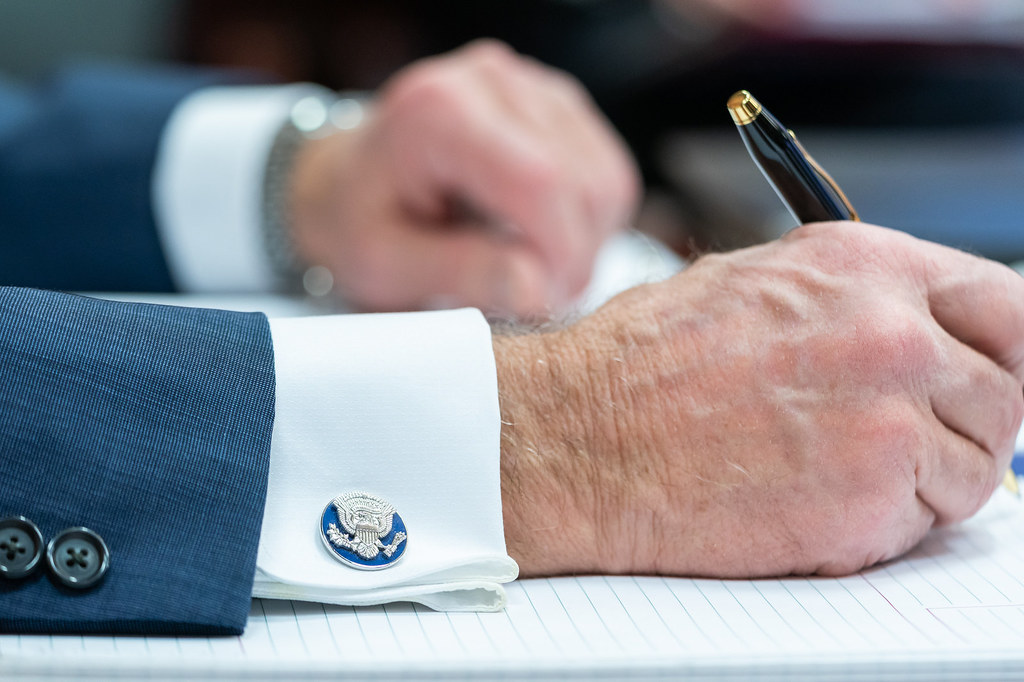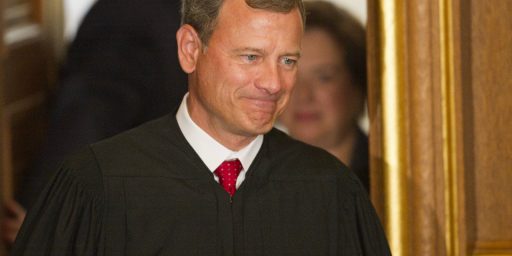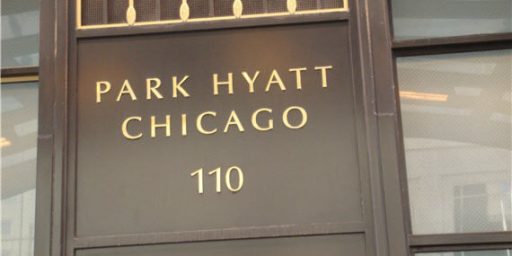Judging Presidents and Presidencies
We tend to focus on the wrong qualities in our early assessments.

In his Atlantic essay, “A Better Way to Judge Joe Biden,” John Dickerson expands on a theme that I got to at the end of this morning’s post on “Performative Leadership.” Ostensibly a pushback against the inevitable commentaries that we’ll see from his media colleagues surrounding the first 100 days of Biden’s presidency, it’s a quick summary of his 2019 book The Hardest Job in the World.
While none of it is new to me, the distillation of so many great points in a short space is worth calling out:
The first quality inspired this article: perspective. The American presidency is overwhelming. We ask too much of it, presidents try to do too much with it, and the number and complexity of its challenges keep growing. A White House team, led by the president, must set priorities.
We should ask whether a president, or someone who wants the job, has their eye on the most urgent issues of the moment—not just on what pundits, the opposition, or the most vocal members of their base want. Then, following Dwight Eisenhower’s advice not to let attention to urgent matters crowd out the ability to think about important ones, we should ask whether a president or candidate has a system in place to tend to the important issues that require long-term thinking, because if that thinking doesn’t take place, it can’t be conjured up in the moment when a crisis hits.
The second attribute is related to the first. Does a president, or presidential candidate, know how to build a team? The presidency is not a solo job; it’s an organization. The quality of the people a president hires shapes the quality of the decisions that a president will make, because they frame the options for those decisions. But a strong roster is just the start. A presidency requires an atmosphere in which bad information doesn’t get buried, course correction is not considered a sin, and egos don’t get out of control. This requires a president to be what Apple’s Tim Cook calls a “heat shield” for employees: encouraging them to take risks, and taking the heat if a constituency is upset or something goes wrong. When a crisis hits, the habits of mind created during relatively placid periods will be vital. They can’t be drawn upon if they don’t exist.
Finally: restraint. Our campaigns and media demand action. When the 100-day assessments start, we’ll spend a lot of time on what’s immediately visible. We should think more about what we don’t see, and the actions a president does not take—a partisan dig not made, a slower approach on one issue that allows attention and progress on another. Restraint is the key to prioritization.
This quality also shapes presidential psychology. The job includes acute moments of decision, but it also requires enduring the daily pressure of always being onstage and, more often than not, having to play a role for the public that is disconnected from a president’s feelings or thoughts. A healthy presidential brain has the restraint to maintain balance—tolerance to weather criticism, patience to let situations develop rather than stabbing after solutions, and comfort in uncertainty.
None of these attributes blots out the ones that are more frequently cited: decisiveness, vision, character, and the capacity to offer pastoral care in times of national pain. Hopefully, though, the seriousness of our recent crises will shift more attention to perspective, team-building ability, and restraint.
The thing is, every bit of the pressure in our modern media environment is against these ideals.
Donald Trump had none of these qualities and was simply an awful President.
Barack Obama was really good at weathering pressure to act quickly, accepting accusations of “dithering” to buy himself more decision space, but not so great at the others. With a handful of exceptions, he had quality people in place but not so much a “team” rowing in the same direction. Moreover, he tended to fire folks who were drawing criticism, which was both a sign of strength and a bad signal to others. And the urgent routinely crowded out the important.
George W. Bush was adept at prioritization, balance, and pastoral care but pretty weak at long-term planning. While his top-level team was very talented, they didn’t work together all that well. With respect largest failure, the Iraq War, it’s not clear whether bad information got buried or they were too worried about changing course. And, goodness knows, there were some strong egos clashing.
It’s almost certainly too early to judge Biden on any of these dimensions but so far, so good. As noted this morning, he’s the first President in a generation prepared for the job on day one and his temperament has aged into one that may be more suitable for the job than the first few times he ran for it.
Alas, I have little hope on this front:
Choosing a president who exhibits these qualities is a particular challenge for the out-party at the moment, because the GOP is the only party that has a shot at designing its selection process to align with what the job requires. A nominating process that rewards expertise in delivering sick burns on Twitter, excellence in taking umbrage at perceived slights, or facility for manufacturing diversionary controversies is going to train a nominee in skills that will be useless on the job and possibly even antithetical to it.
Unless the party in the electorate, the faithful who will choose the next nominee in the 2024 primaries, somehow turn away from Fox News and the like, I don’t see how the GOP nominates someone with the qualities Dickerson identifies.






On the larger points we agree but this kinda stuck on me:
What happened with Iraq was pure hubris. It wasn’t so much the clash of egos as much as the utter lack of humility. They couldn’t imagine they were wrong or that they were never up to the task they set for themselves. They were masters of the universe. When *somebody* in the Bush admin said,
‘That’s not the way the world really works anymore,’ he continued. ‘We’re an empire now, and when we act, we create our own reality. And while you’re studying that reality—judiciously, as you will—we’ll act again, creating other new realities, which you can study too, and that’s how things will sort out. We’re history’s actors…and you, all of you, will be left to just study what we do’
They really believed it, they thought their actions were the only ones that counted.
**speculated to have come from Rove, but I hear it in Cheney’s voice
@OzarkHillbilly: Oh, it was a whole host of issues, certainly including hubris. I was just quickly applying Dickinson’s tests to the last twenty years.
John Dickerson is a journalist and historian I admire. Always thoughtful, measured, and looking for the big picture. His Whistlestop podcasts about presidents and the presidency he did for Slate a couple of year ago were excellent.
Dickerson didn’t include being someone you’d want to have a beer with or someone having the guts to bash the opposition without fear of political correctness, so I don’t know if his criteria will be all that helpful in guiding the US electorate when choosing Biden’s successor. The People know what they want.
Several pundits have tweeted in the last month about how much they miss Trump. And because they know how terrible it sounds, they try to rope others in by adding something like, “and you’re lying if you say you don’t.”
They’ve been shocked at the huge blowback and ratios they’ve received from ordinary Twitter folks who don’t miss Trump and are utterly relieved by his absence.
I think many journalists thrived on the drama—and the ratings—that Trump brought them. They’re trying so hard to create a similar sense of drama around Biden and his administration, and it’s driving them nuts that he’s not biting.
@Monala:
Well, as they say, “if it bleeds, it leads,” and Trump was just one huge, festering, oozing sore on the body politic.